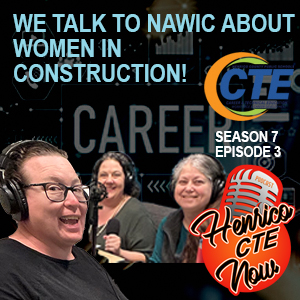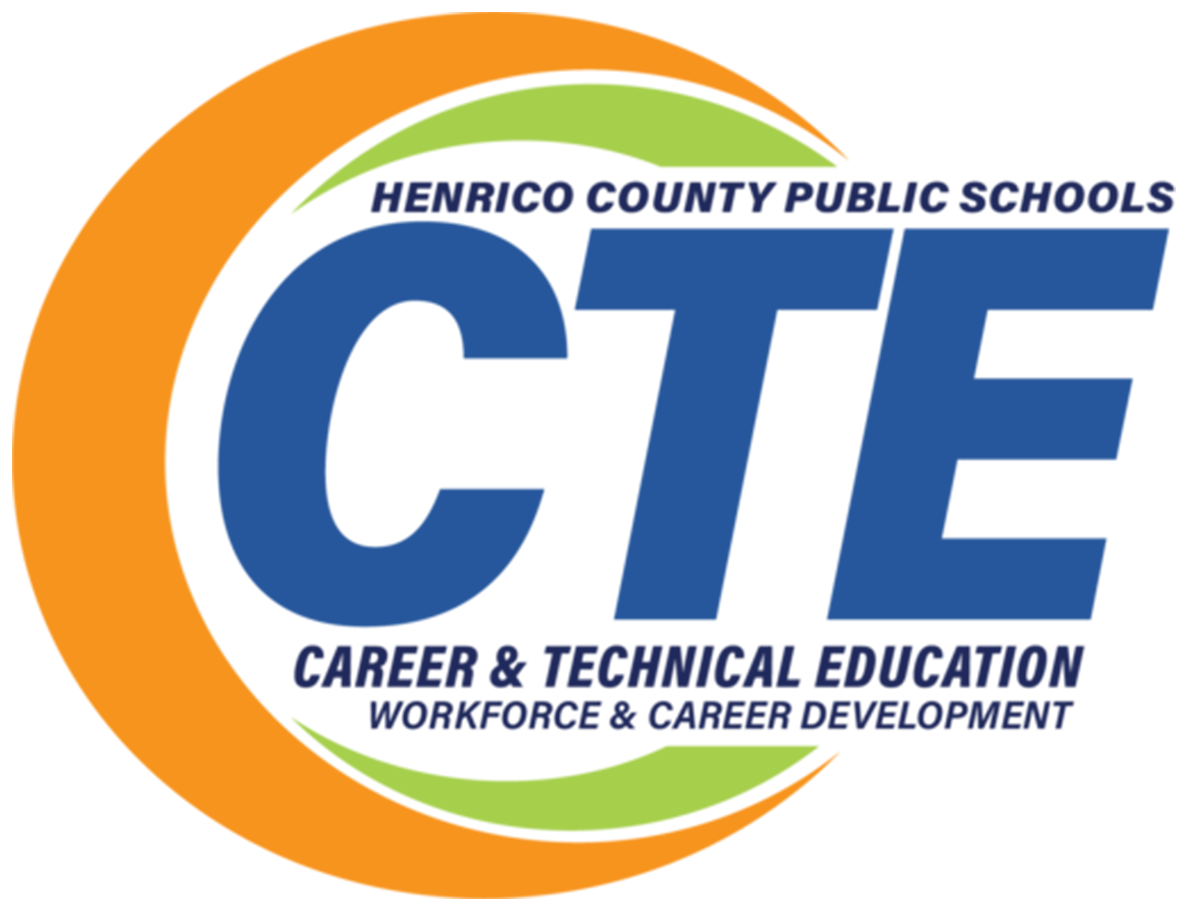Click here to listen. With career opportunities plentiful in construction, the Richmond chapter of the National Association of Women in Construction (NAWIC) is paving the way for more women to enter the industry in a variety of roles. In this episode, Kristi Smith, Jessica Behmke, and Kelly Schips share their stories of entering the construction field and what our community can do to encourage more girls to do the same.
Architecture & Construction Courses


The Architecture and Construction cluster is about using your skills in design, planning, and management to work in careers building and maintaining structures such as buildings, homes, bridges, or machinery. Work opportunities include developing new structures, restorations, additions, alterations, and repairs. Construction is the pathway with the highest number of employment opportunities.
Civil engineers – who work on construction projects in the public and private sectors – should see prospects grow due to many factors, including the need to upgrade aging infrastructure and an increase in renewable energy projects. Carpenters also should see favorable job prospects. As the population grows, more homes will need to be built, which will drive the need for carpenters. Home remodeling needs also will drive the demand for carpenters. An increase in construction jobs over the next decade should increase the need for architects. Architects with strong technical skills and knowledge of sustainable, or “green,” design will have better job prospects.
Middle School or Exploratory Courses
No Courses
High School Courses
Air Conditioning, Refrigeration, & Plumbing I & II: #8503, #8504 (ACE)
Plumbing and Fire Protection Sprinkler Fitting I&II: #8551, #8552 (ACE)
Sample Careers
Architectural and civil drafter or engineer
Environmental designer
Residential or commercial carpenter
Construction worker
Systems configuration manager
Electrical design engineer
Electrician
HVAC/HVACR technician
Building services technician
Painter
Sheet metal technician

Henrico CTE Now: Guests: Kristi Smith, Jessica Behmke, Kelly Schips, Season 7, Episode 3

Published: November 15, 2023.
Click here to listen. Roofing is not just a job; it’s a career that offers many opportunities for growth and advancement. In this episode, we talk with Scott Shufflebarger, President of Hertless Brothers Roofing and member of the Virginia Association of Roofing Professionals (VARP). We discuss how students and individuals can take advantage of the lucrative career opportunities in the roofing industry.

Published: September 19, 2023.
Click here to listen. In this episode, we talk with Mary Starr, Business Development Manager, with Shirley Contracting Company, and Mac Beaton, Director, Workforce & Career Development, HCPS. Out of high school and moving on to college, Mary was working toward a career as a physical therapist. As with many people, things happen and now she is working for a successful civil contractor in Virginia. Find out about her story and why Mac is back on the show on today’s podcast! You are going to love this episode.

Published: September 5, 2023.
Click here to listen. In this episode, we talk with Courtney Baker, Director of Workforce Training with Associated General Contractors, and Taylor Brannon, Executive Vice President of F. Richard Wilton Contractor. Our discussion covered everything from the importance of Career and Technical Education for companies that hire trade specialists, managers, supervisors, engineers, and all the support staff needed to operate all types of contracting companies. A large part of the discussion is the need for high school and college graduates for their industries and how students can prepare for their future careers by attending Career and Technical Education programs while in middle and high school.
High school certifications, licenses and related college majors:
High School/Industry Certifications | Certificate/License | College Degrees |
|---|---|---|
EPA Technician Examination (Core) | Apprenticeship | Architectural Engineering |
CAD | Civil Engineering | |
NCCER | Construction Management | |
Interior Design | ||
Urban Planning |
All CTE trade and industry classes offer the Workplace Readiness Skills Test
In Demand Careers
Education Needed | Occupation | Median Salary | Job Growth | Job Openings |
|---|---|---|---|---|
High School | Electricians | $56,180 per year | 8% (Much faster than average) | 62,200 |
High School | Plumbers, Pipefitters, and Steamfitters | $55,160 per year | 4% (As fast as average) | 20,900 |
High School | Heating, Air Conditioning, and Refrigeration | $48,730 per year | 4% (As fast as average) | 15,100 |
Bachelor’s | Construction Managers | $95,260 per year | 8% (Much faster than average) | 40,400 |
Bachelor’s | Electrical and Electronics | $101,250 per year | 3% (As fast as average) | 10,800 |
Bachelor’s | Environmental Engineers | $88,860 per year | 3% (As fast as average) | 1,700 |
Student Leadership Organizations
SkillsUSA: SkillsUSA is a United States career and technical student organization serving more than 395,000 high school, college and middle school students and professional members enrolled in training programs in trade, technical and skilled service occupations, including health occupations.
Work-Based Learning
Work-Based Learning (WBL) is comprised of experiences related to students’ career interests, based on instructional preparation, and undertaken in partnership with local businesses or organizations. WBL enables students to apply classroom instruction in a real-world work environment. Work-Based Learning promotes Career Awareness, Career Exploration, and Career Preparation.

